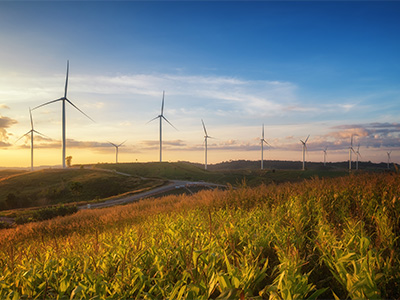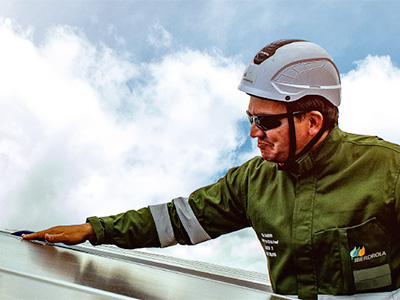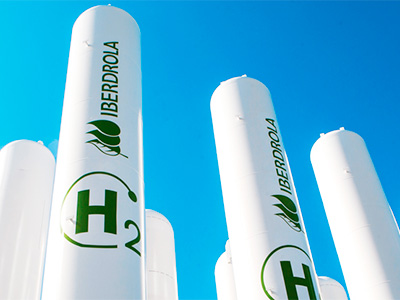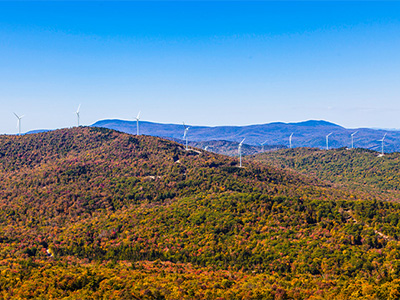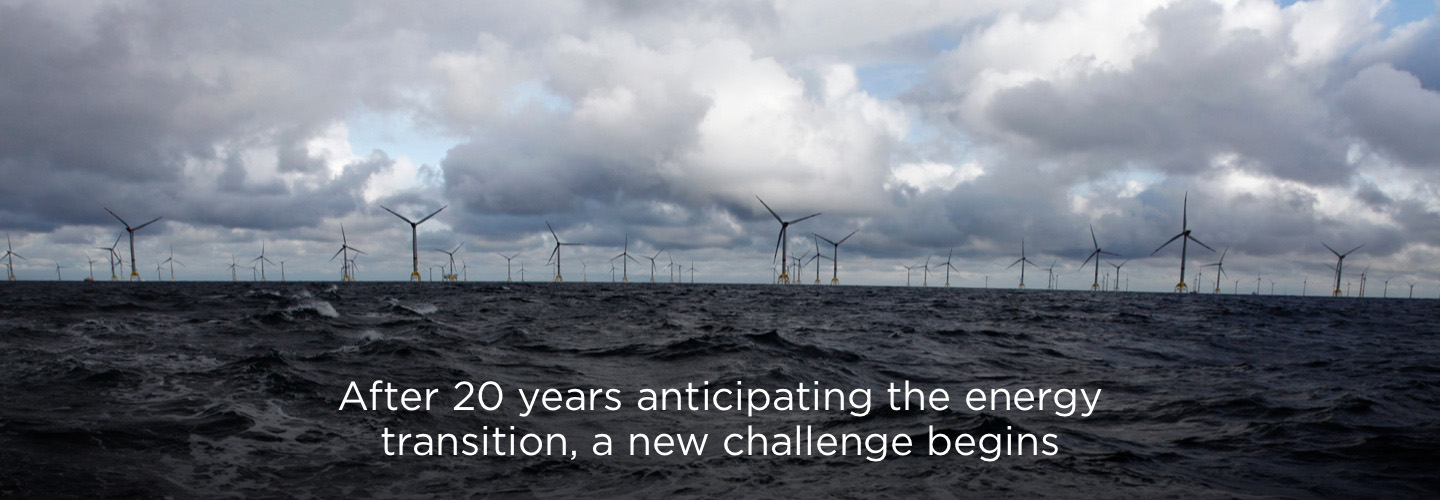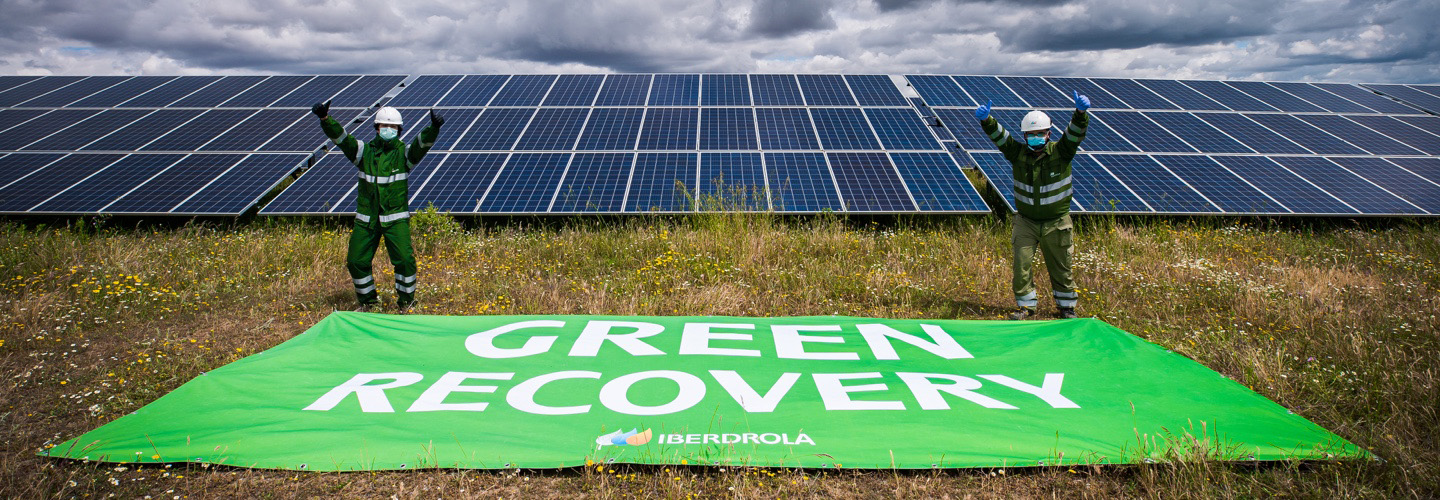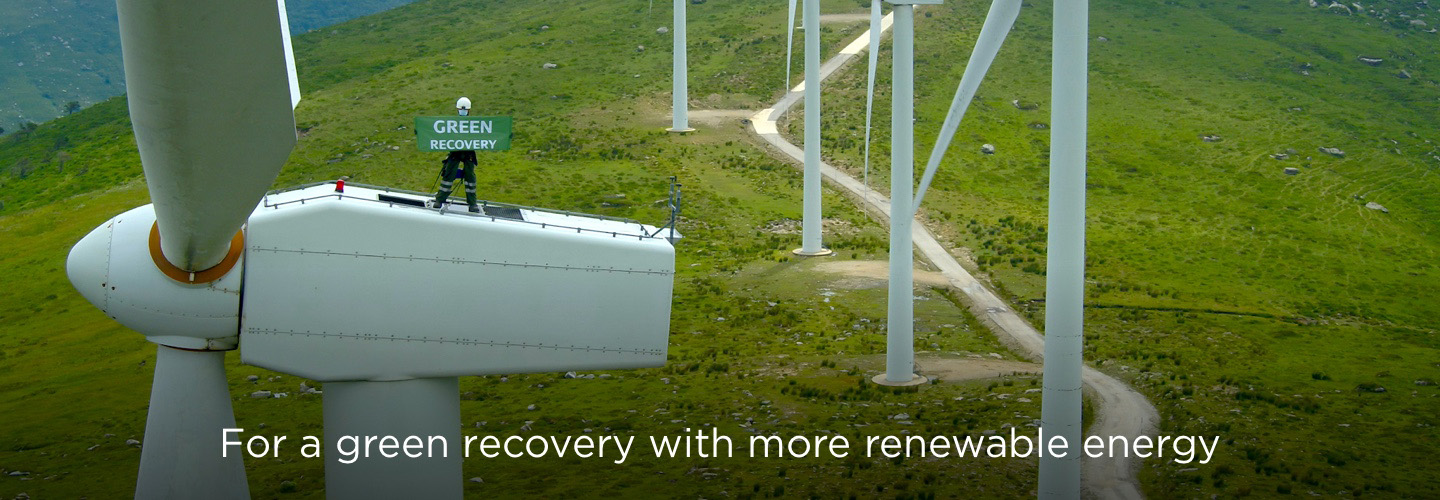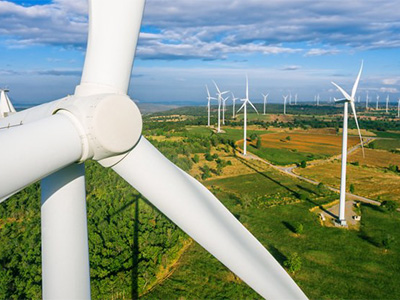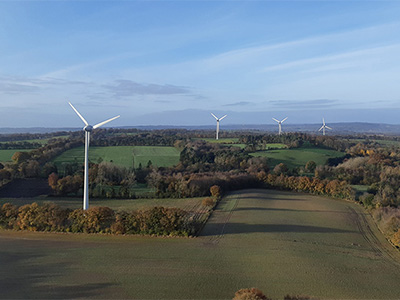Green Recovery
What is the Green Recovery?
As part of our commitment to sustainability, we promote green recovery with the aim of preserving the environment, reducing carbon emissions and promoting a more sustainable future for future generations.

The Green Recovery is the name given to a series of economic recovery measures aligned with achieving long-term climate change and sustainability objectives, to move toward a sustainable and economic model for the planet, which is both more resilient and inclusive.
European alliance for a Green Recovery
This alliance includes a wide range of actors at the European level and has been signed by ministers, MPs from all parties, CEOs, NGOs, academics, etc. It is being driven by Pascal Canfin (European Parliament) and advocates defining and implementing green economic recovery packages to act as accelerators of the transition towards climate neutrality and healthy ecosystems.
Iberdrola, which has supported the Green Deal from the start, considers that this agreement will make it possible to take up the opportunities that come with the fight against climate change and improve countries' competitiveness. By putting decarbonisation and digitalisation at the centre of its policies, it is encouraging investment in renewable energies which are cleaner, safer and more affordable and lead to the creation of high-quality long-term jobs, as well as reducing air pollution and, therefore, improving citizen health.

"After 20 years anticipating the energy transition, our business model positions us as a key driving player in the transformation of the industrial fabric, using our experience, social commitment and financial capacity to promote a long-term sustainable economic growth model capable of meeting the current challenges facing society."
Ignacio S. Galán
Iberdrola's Executive Chairman
The Green Recovery, a reality for everyone
How are the principles of the Green Recovery being applied in Europe?
The principles of the green recovery are part of the main political projects in the European Union. The European Commission has reiterated its determination to establish the European Green Deal as the roadmap for a long-term green recovery. Many European countries including Spain, France, Germany, Italy and Ireland have also declared themselves to be in favour of aligning economic recovery programmes with climate action goals.
In Spain, policy proposals are being put forward to move towards meeting climate targets. For example, the Government has proposed a Climate Change and Energy Transition Law that aims to achieve climate neutrality by 2050 and incorporates ambitious intermediate targets for emissions, renewables and improved energy efficiency.


What can businesses do to support a coordinated Green Recovery process?
Companies can support this process with their investments and general business practices, implementing and also strengthening their investment plans in business solutions aligned with climate and sustainability goals, for example, with heavy investment in renewable energies or electrified transportation. Additionally, as part of civil society, companies can publicly support green economic recovery frameworks through statements and campaigns.

How can citizens support the Green Recovery?
Citizens are increasingly aware of all the challenges affecting society, although there is still some way to go in terms of information and awareness. One example of the support for green recovery frameworks has been the recent launch of the 'Manifesto for Sustainable Recovery', to which a broad cross-section of Spanish society (culture, universities, politics, business, NGOs, etc.) has adhered.

What can businesses do to support a coordinated Green Recovery process?
Companies can support this process with their investments and general business practices, implementing and also strengthening their investment plans in business solutions aligned with climate and sustainability goals, for example, with heavy investment in renewable energies or electrified transportation. Additionally, as part of civil society, companies can publicly support green economic recovery frameworks through statements and campaigns.

How can citizens support the Green Recovery?
Citizens are increasingly aware of all the challenges affecting society, although there is still some way to go in terms of information and awareness. One example of the support for green recovery frameworks has been the recent launch of the 'Manifesto for Sustainable Recovery', to which a broad cross-section of Spanish society (culture, universities, politics, business, NGOs, etc.) has adhered.
The keys to 'Green Recovery': current challenges and how to deal with them
01
The need to address climate change
The situation that has emerged from the international outbreak of COVID-19 has highlighted the fragility of our society in the face of global threats. The main risk the world will face in the coming years will cause economic and social shocks of an even greater magnitude than the coronavirus.
01
The need to address climate change
The situation that has emerged from the international outbreak of COVID-19 has highlighted the fragility of our society in the face of global threats. The main risk the world will face in the coming years will cause economic and social shocks of an even greater magnitude than the coronavirus.
02
Problems that will be generated or aggravated by global warming
Rising sea levels, loss of biodiversity, overexploitation of natural resources, deforestation, air and ocean pollution, natural disasters, climatic migrations or increased conflict
02
Problems that will be generated or aggravated by global warming
Rising sea levels, loss of biodiversity, overexploitation of natural resources, deforestation, air and ocean pollution, natural disasters, climatic migrations or increased conflict


03
Recovery will be green or it won't be
The Green Recovery concept involves aligning economic recovery measures with the achievement of long-term climate change and sustainability goals, thereby achieving a drive towards a socio-economic model that is more sustainable for the planet, more resilient to future shocks and more inclusive.
03
Recovery will be green or it won't be
The Green Recovery concept involves aligning economic recovery measures with the achievement of long-term climate change and sustainability goals, thereby achieving a drive towards a socio-economic model that is more sustainable for the planet, more resilient to future shocks and more inclusive.
04
Going for green stimulus policies
Green Recovery could have numerous advantages over a more traditional approach, as shown by a report led by the University of Oxford, which states that green stimulus policies generate more employment, produce higher short-term returns and lead to a higher long-term multiplier effect compared to traditional ones.
04
Going for green stimulus policies
Green Recovery could have numerous advantages over a more traditional approach, as shown by a report led by the University of Oxford, which states that green stimulus policies generate more employment, produce higher short-term returns and lead to a higher long-term multiplier effect compared to traditional ones.
How can renewable energies contribute to the post-COVID-19 economic recovery?
The principles of a green recovery are based on aligning economic recovery measures with attaining medium-and long-term climate change mitigation and sustainability goals. Renewable energies do both.
They are currently a source of employment for more than 11 million people around the world and a key sector in the decarbonisation of the economy and achieving climate objectives. The current project portfolio would make it possible to accelerate investments and increase projects in the short term. The sector is undergoing a technological revolution and cost reductions and technical improvements are making renewables increasingly competitive, so that accelerating these investments requires less support from budgets.
Additionally, by investing in indigenous sources of generation such as wind and solar energy, the dependence on foreign energy is reduced, which results in significant improvements in the external balance and creates a sustainable industrial fabric for the future. Also, by replacing more polluting technologies, investment in renewable energies will improve air quality levels and as a result, health.






